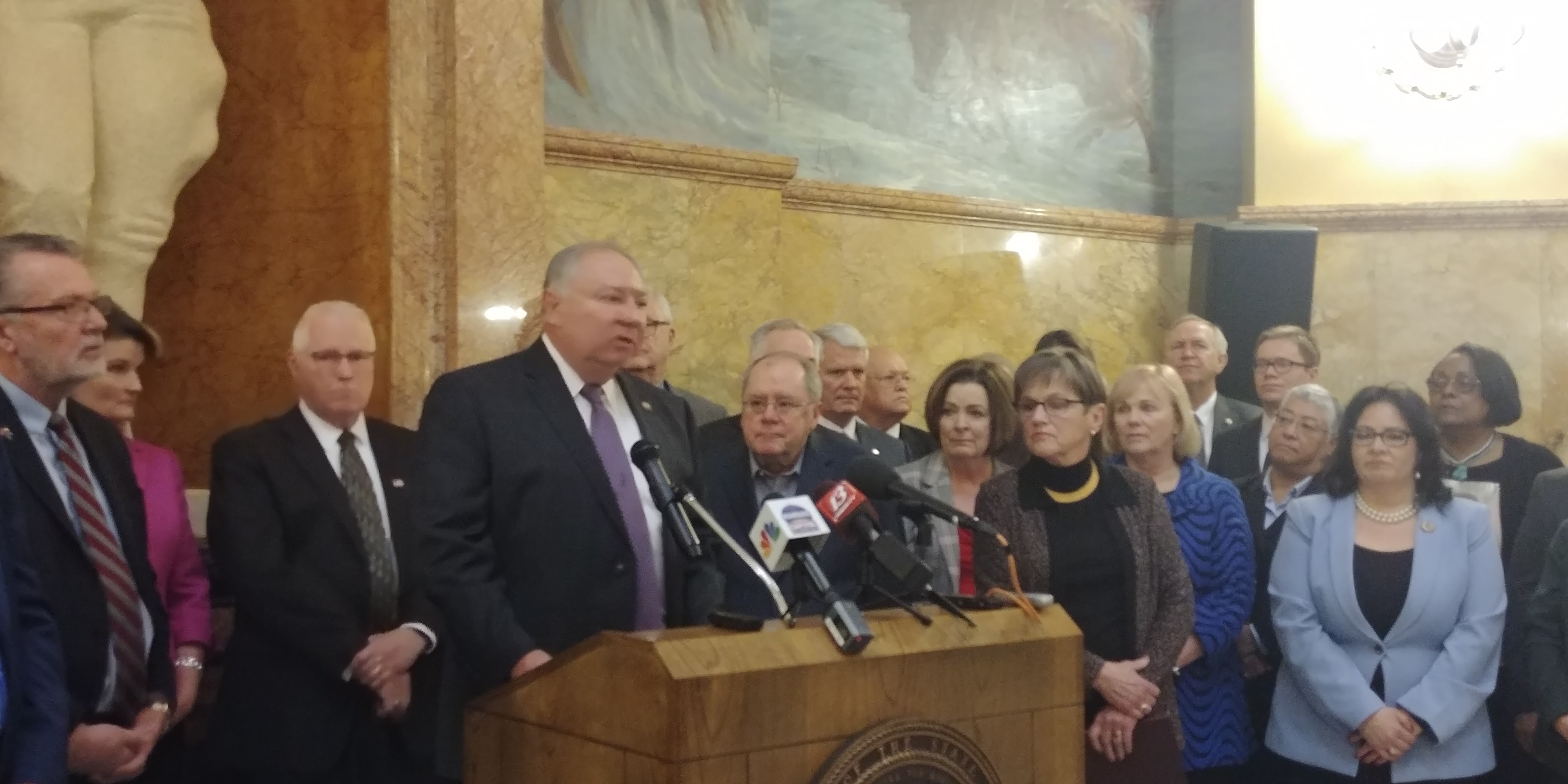A special select committee of Kansas Senators is set to meet on Oct. 22 and Oct. 23 to map out a proposal for Medicaid expansion in Kansas.
The 2019 legislative session concluded without the Senate taking a floor vote on HB 2066, an expansion plan that passed the House. Sen. Gene Suellentrop says that legislation will not be used as a model for expansion.
“I’m not at liberty to say what the plan might look like at this time,” Suellentrop said. “There’s a lot of discussion about how it is going to look in the end.”
The objective in the interim committee meetings will be to draft an expansion plan that meets the needs of the public and is fiscally responsible, he said. He didn’t offer specifics about how that might differ from HB 2066. Others have suggested the Senate committee’s plan might include things like work requirements for eligibility, initiating copays, and increasing the income requirements.
HB 2066 offered taxpayer-funded Medicaid to able-bodied adults without dependents with incomes less than 138 percent of the federal poverty level. Other states, like Utah, passed legislation that would seek to offer Medicaid eligibility to able-bodied adults at or below 100 percent of the poverty level.
Any state that deviates from the Obamacare guidelines for expansion must seek a waiver from the Centers for Medicare and Medicaid Services (CMS). The feds denied Utah’s request to increase income requirements for its Medicaid expansion eligibility.
That’s why insuring any Kansas proposal for Medicaid expansion must include a non-severability clause, one lobbyist involved in expansion discussions said. He asked not to be named in this story. A non-severability clause would mean that if CMS declined to grant a waiver for any part of Kansas’s Medicaid expansion, then expansion would be scrapped until the legislature passed a different expansion proposal that meets federal muster.
As written, the House’s expansion proposal last year would have given the Governor’s administration executive authority to recraft expansion if CMS were to deny the state a waiver.
“That’s part of the problem,” says House Majority Leader Dan Hawkins, a Wichita Republican. “If you write it where it automatically gets declined, the Governor gets to do whatever she wants.”
For instance, lawmakers in the House added a provision that would require able-bodied adults receiving Medicaid to pay $50 per month in premiums. Currently, the federal government funds only 90 percent of Medicaid expansion, and the premiums were designed to help fund Kansas’s portion. However, CMS could deny a waiver for the premiums, allowing Gov. Laura Kelly to expand Medicaid anyway. The legislature would then be required to come up with a different funding mechanism for its share of expansion.
House members won’t be included in the Senate’s interim committee on Medicaid expansion. Suellentrop says the House weighed in on the topic last session, passing expansion legislation that never reached the Senate floor. The Senate’s committee will focus on gathering input from professionals in the field and people who have knowledge about how expansion is working in other states, Suellentrop said.
Beverly Gossage, a former Kansas Insurance Commissioner candidate and senior fellow with the Independent Women’s Voice, is assisting federal lawmakers on crafting health care policies. She says Medicaid expansion has blown up the budgets in other states. The state’s share of expansion is estimated to be more than $34 million to add up to 150,000 able-bodied adults without dependents to the welfare rolls.
“Does Medicaid actually help people or is it that we have hospital associations saying we have to have this? And does Kansas have that many people uninsured compared to other states who have Medicaid expansion?” she says. “Kansans has about the same percentage of uninsured as the states that have expanded Medicaid.”
Still, Senate Republican leadership appears committed to considering a Medicaid expansion proposal next legislative session. Senate Majority Leader Jim Denning told the Topeka Capital-Journal last May that the timing of expansion is the only area of disagreement between the House and Senate.
“The Democrats and moderate Republicans in the House wanted expansion this session… The Senate will have a Medicaid expansion bill debated next year, and it will be a better product than what the House passed over to us,” he said in May.




